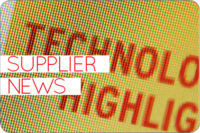Food and beverage companies have a sense of the importance of new digital technologies to food safety, but lack the understanding of how to apply solutions like blockchain for this purpose – that’s according to a global survey of more than 1 600 industry experts. The survey carried out by DNV GL and GFSI found that only 1 in 10 companies are currently using new technology to ensure food safety but firms responded more positively in the longer term, with that number rising to almost 4 in 10.
Of the new wave of digital technologies, sensors and beacons (44% today, 56% in three years) are the most widely used solution followed by blockchain (15% today, 40% in three years). However, the lack of clarity is impacting investment decisions with more than a quarter of companies saying they do not know how much they will invest in digital solutions in the next 12 to 18 months and 14% answered that they will not spend in this area at all. Asian companies in particular see value in blockchain, with 57% expecting to use the technology in three years, which is significantly higher than other regions.
“Digital technologies such as blockchain will transform many industries, especially those in the retail sector, but this survey indicates that to many food and beverage companies these technologies have yet to transition from buzzwords to real applications,” said Luca Crisciotti, CEO – Business Assurance, DNV GL. “At DNV GL we introduced blockchain to raise transparency in the certification process and to help brands bridge the trust gap between their efforts and consumers’ concerns, but it is clear we must work together as an industry to fully utilize the potential of new digital technologies to improve food safety.”
Elsewhere in the survey, safeguarding the health of consumers (88%) was shown to be the main driver of food safety, followed by laws and regulation (69%) and needs/requests from customers (60%). Commercial benefits (30%) rank low, indicating that ensuring food safety is seen as a prerequisite.
Operational risk (76%), such as contamination, is perceived to be the standout threat whilst a lack of food safety culture (30%) and compliance to regulations (28%) are the next two biggest risks. The fear of operational risks is especially strong in Europe (82%) compared to other regions.
A clear majority of companies view certification as a necessity of doing business (79%) whilst more than half (53%) see it as a way of improving food safety.
For more information visit www.dnvgl.com.






